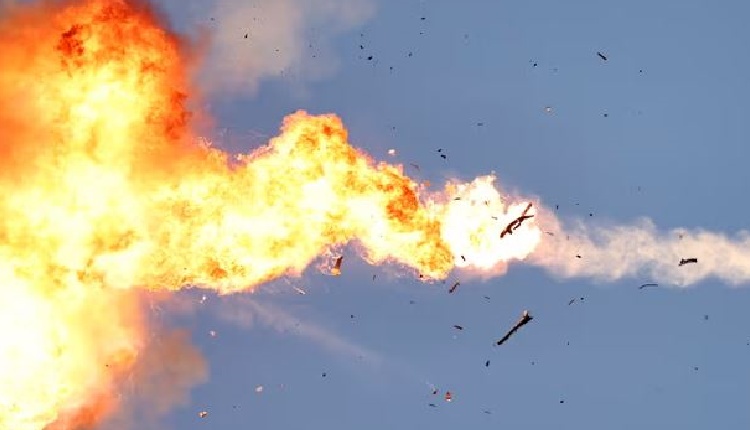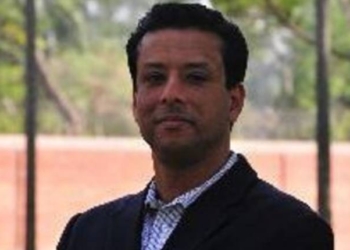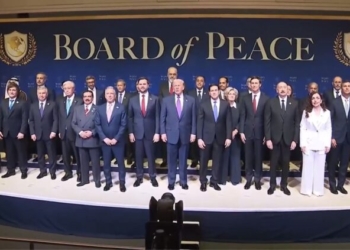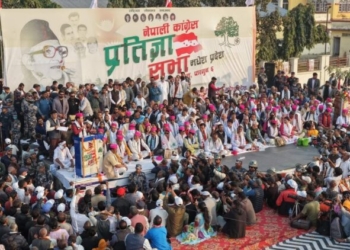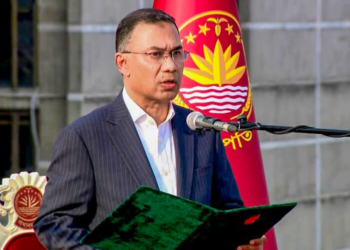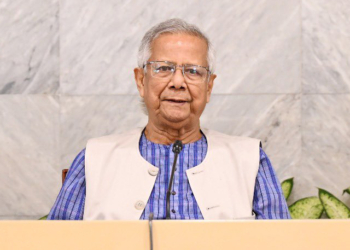Jerusalem: Israeli Prime Minister Benjamin Netanyahu has warned Hezbollah and Iran that the intense airstrikes in Lebanon are “not the end of the story”.
Addressing the Cabinet, Netanyahu said on Sunday that the strikes “destroyed thousands of short-range rockets intended to attack our citizens and forces in the Galilee”.
He also claimed the Israel Defense Forces (IDF) intercepted all drones launched by Hezbollah targeting a strategic area near Tel Aviv, including the Mossad headquarters, according to state-owned Kan TV.
Before dawn, nearly 100 Israeli warplanes bombed “hundreds of armed launchers and thousands of launcher barrels, mostly aimed at northern Israel,” IDF Spokesman Daniel Hagari said on Sunday in a briefing as reported by Xinhua news agency.
Hagari described the operation as a “pre-emptive attack” intended to neutralise a broader threat.
He noted that most rockets and drones launched by Hezbollah were intercepted.
Hezbollah took responsibility for targeting several military sites in northern Israel with 320 rockets, calling it “the first phase” of its retaliation for the assassination of senior official Fouad Shokor in Beirut last month.
The group also confirmed drone launches into central Israel, claiming to have caused infrastructure damage.
The IDF denied that any military base was damaged, and no casualties were reported on the Israeli side, except for one woman who sustained light injuries from shrapnel.
Netanyahu did not name the target but the Hezbollah leader, Hassan Nasrallah, described it as “a military intelligence base 110 km inside Israeli territory” just outside Tel Aviv, an apparent reference to the Glilot military base, home to the Mossad spy agency and military intelligence agencies such as the Unit 8200 electronic surveillance section.
With Israel’s attack on Lebanon, the prospect of peace is moving even further out of reach
Two Hezbollah fighters and a militant from an allied group were killed in the strikes on Lebanon. An Israeli navy officer was killed and two other service members injured on a patrol boat off the coast of northern Israel that was hit by shrapnel from an Iron Dome interceptor missile.
On Sunday evening the armed wing of Hamas said that it had fired an “M90” rocket at Tel Aviv in response to what it said was the “Israeli massacres against civilians”.
The IDF said sirens sounded in Rishon LeTsiyon, about 15 miles south of Tel Aviv, but the rocket landed “in an open area”.
A Hamas official also said on Sunday evening that it rejected new Israeli conditions put forward in Gaza ceasefire talks, casting further doubt on the chances of a breakthrough in the latest US-backed effort.
“We will not accept discussions about retractions from what we agreed to on July 2 or new conditions,” Hamas official Osama Hamdan told the group’s Al-Aqsa TV on Sunday.
In a speech earlier on Sunday, Nasrallah downplayed the impact of Israeli airstrikes and portrayed Hezbollah’s aerial attack, intended to avenge the killing of a senior commander last month, as a success.
Nasrallah said that Hezbollah had used its Katyusha rockets (320 of them according to its official statements) to distract Israel’s Iron Dome air defence system from mass drone attacks.
He added that all the drones involved had been successfully launched and had entered Israeli airspace, but did not say how many, if any, had reached their intended target.
The Hezbollah Secretary General claimed the Lebanese Shia militia had decided not to respond to the killing in late July of its commander, Fuad Shukr, with attacks on Israeli civilians or infrastructure but to focus on exclusively military targets.
He added that Hezbollah’s arsenal of guided missiles had not been used and had not been damaged by Israeli airstrikes, so could be used in the future. The impact of Sunday’s salvo would be assessed before a decision on whether to take further action to avenge Shukr.
“If results are not seen to be enough, we will respond another time,” Nasrallah said in a televised address.
(IANS)




